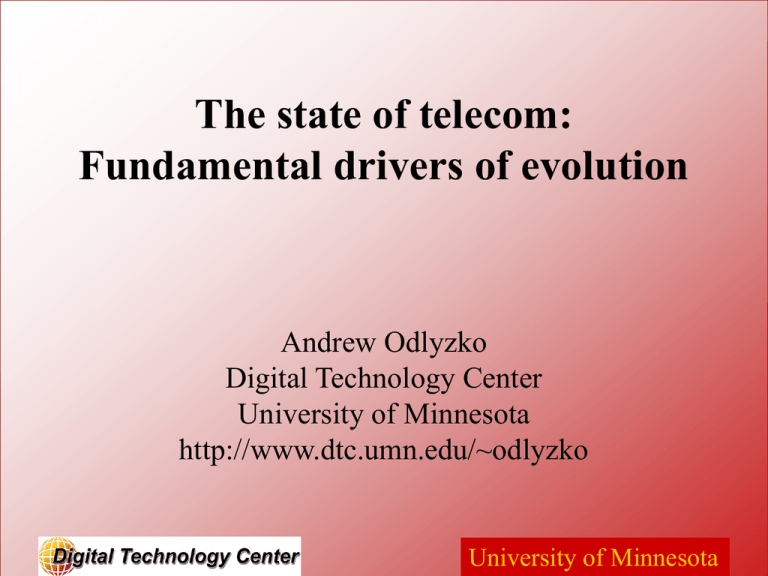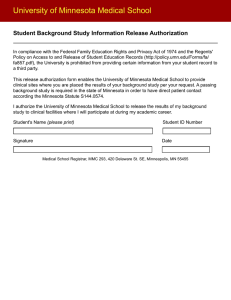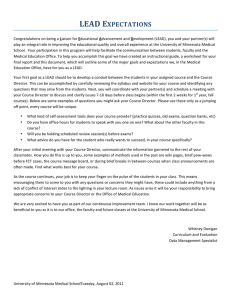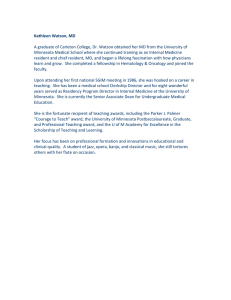The state of telecom: Fundamental drivers of evolution Andrew Odlyzko Digital Technology Center
advertisement

The state of telecom: Fundamental drivers of evolution Andrew Odlyzko Digital Technology Center University of Minnesota http://www.dtc.umn.edu/~odlyzko University of Minnesota Telecom today: Still suffering from the overinvestment and malinvestment of the bubble years Moving into major restructuring phase University of Minnesota Technology: Many choices Drive for uniformity (converged network) Drive for diversity (walled gardens, security, redundancy, customer-owned networks, outsourcing, ...) Likely outcome a multimodal telecom scene, unified by IP layer (in analogy with transportation sector, unified by container) University of Minnesota Long-haul is not where the action is: 360networks transatlantic cable Construction cost Sale price Annual operating cost Lit capacity Fully lit capacity Ave. transatlantic Internet traffic $850 M $18 M $10 M 192 Gb/s 1,920 Gb/s 200 Gb/s (mid-2005) University of Minnesota Primacy of user needs and user inertia: Yellow pages example: Qwest sale of directory division in 2002 for approx. $7 billion (annual revenues $1.6 billion, margins 63%) Current (October 2005) market cap of Qwest: approx. $7 billion user inertia often most important factor in business success University of Minnesota User needs: frequently misunderstood by telecom Example: connectivity and not content primary post-Katrina: what was the main complaint: lack of voice telephony? or lack of TV? University of Minnesota Connectivity: value of connection probably logarithmic in bandwidth early 19th century “crossed-letter” University of Minnesota Human communication: One picture is worth a thousand words University of Minnesota Human communication: One picture is worth a thousand words, provided one uses another thousand words to justify the picture. Harold Stark, 1970 University of Minnesota Voice is uniquely important for human communication: Possible enhancements: 1. higher quality 2. segmenting the market through several levels of quality 3. voice mail (to combine power of voice with the non-intrusive advantage of email) 4. emergency capacity boosts through pushing all users to lower levels of quality (and higher compression) instead of complicated prioritization schemes 5. wireless toll-free calls ... but all are being ignored by telecom that is deluded by the content dream University of Minnesota Conclusions: Promising future for telecom, but much turmoil likely to have a heterogeneous collection of technologies unified at IP layer winners impossible to predict success dependent on overcoming false dogmas Further data, discussions, and speculations in papers and presentation decks at: http://www.dtc.umn.edu/~odlyzko University of Minnesota




